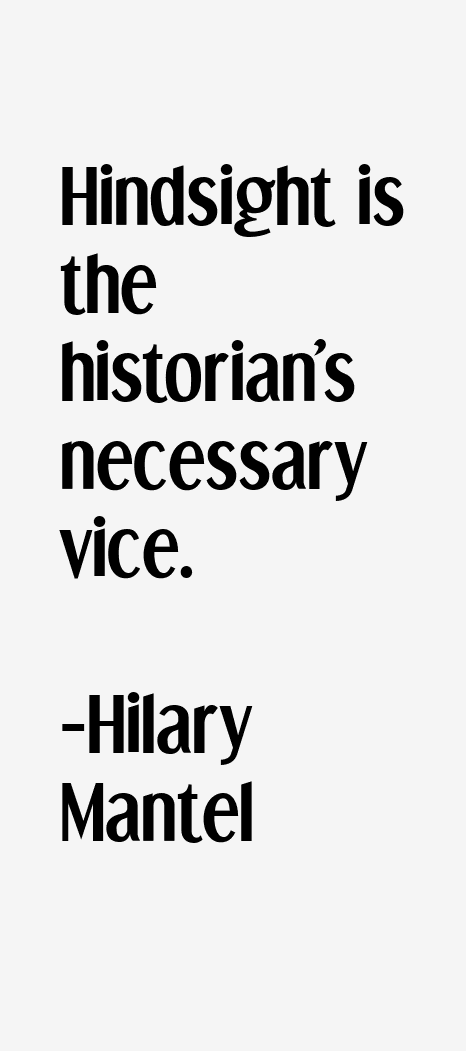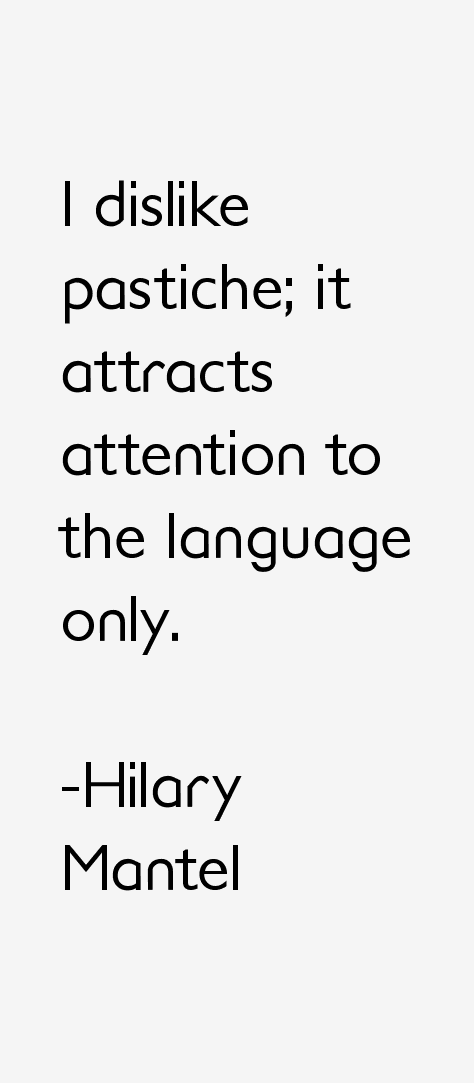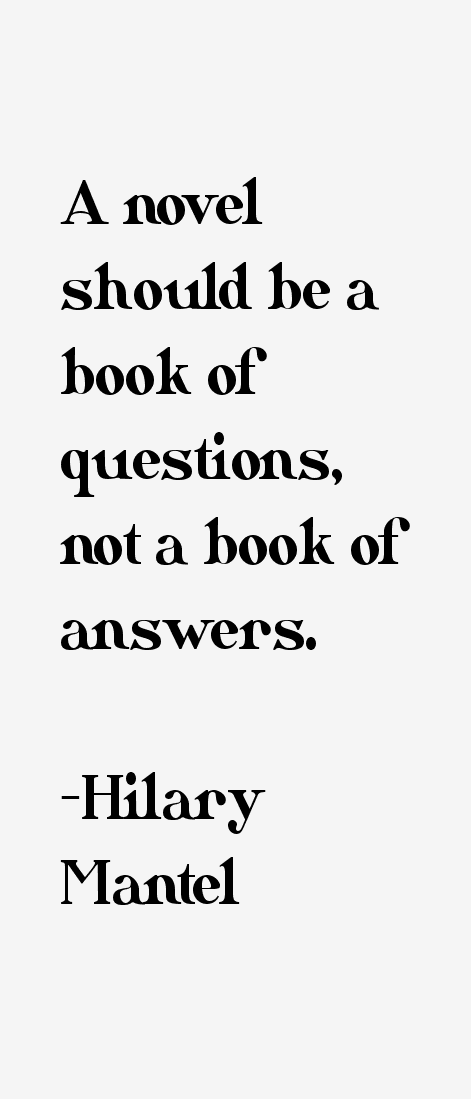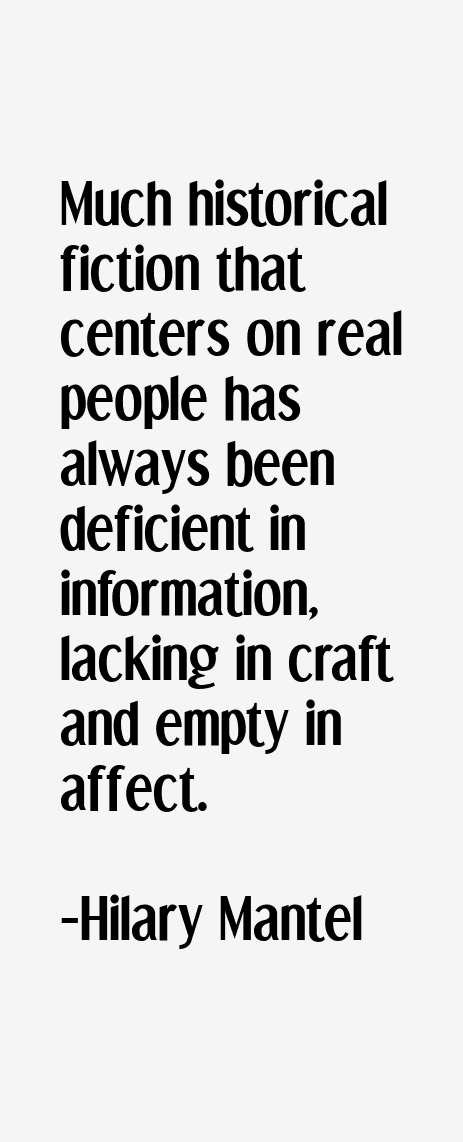Hilary Mantel Quotes & Sayings (Page 3)
Hilary Mantel quotes and sayings page 3 (writer). Here's quote # 21 through 30 out of the 76 we have.
“Back in my 20s, when I wrote 'A Place of Greater Safety,' the French Revolution novel, I thought, 'I'll always have to write historical novels because I can't do plots.' But in the six years of writing that novel, I actually learned to write, to invent things.”
“Sometimes you buy a book, powerfully drawn to it, but then it just sits on the shelf. Maybe you flick through it, the ghost of your original purpose at your elbow, but it's not so much rereading as re-dusting. Then one day you pick it up, take notice of the contents; your inner life realigns.”
“The experienced writer says to the anguished novice: 'Just do it; get something, anything, on to the screen or page, just establish a flow of words, and criticise them later.' You give this advice but can't always take it.”
“When I was a child, there was very little money, so I've always been concerned for my financial security, which has meant that finding myself as a writer was a bad move. The practical difference the money has made is that I can support myself by fiction. That is what I have been trying to do throughout my life.”
“Writers displace their anxiety on to the tools of the trade. It's better to say that you haven't got the right pencil than to say you can't write, or to blame your computer for losing your chapter than face up to your feeling that it's better lost.”

“Hindsight is the historian's necessary vice.”

“I dislike pastiche; it attracts attention to the language only.”

“A novel should be a book of questions, not a book of answers.”

“Much historical fiction that centers on real people has always been deficient in information, lacking in craft and empty in affect.”

“Sometimes people ask, 'Does writing make you happy?' But I think that's beside the point. It makes you agitated, and continually in a state where you're off balance. You seldom feel serene or settled.”
Hilary Mantel Quotes Rating
No Ratings Yet
Leave A Comment
























